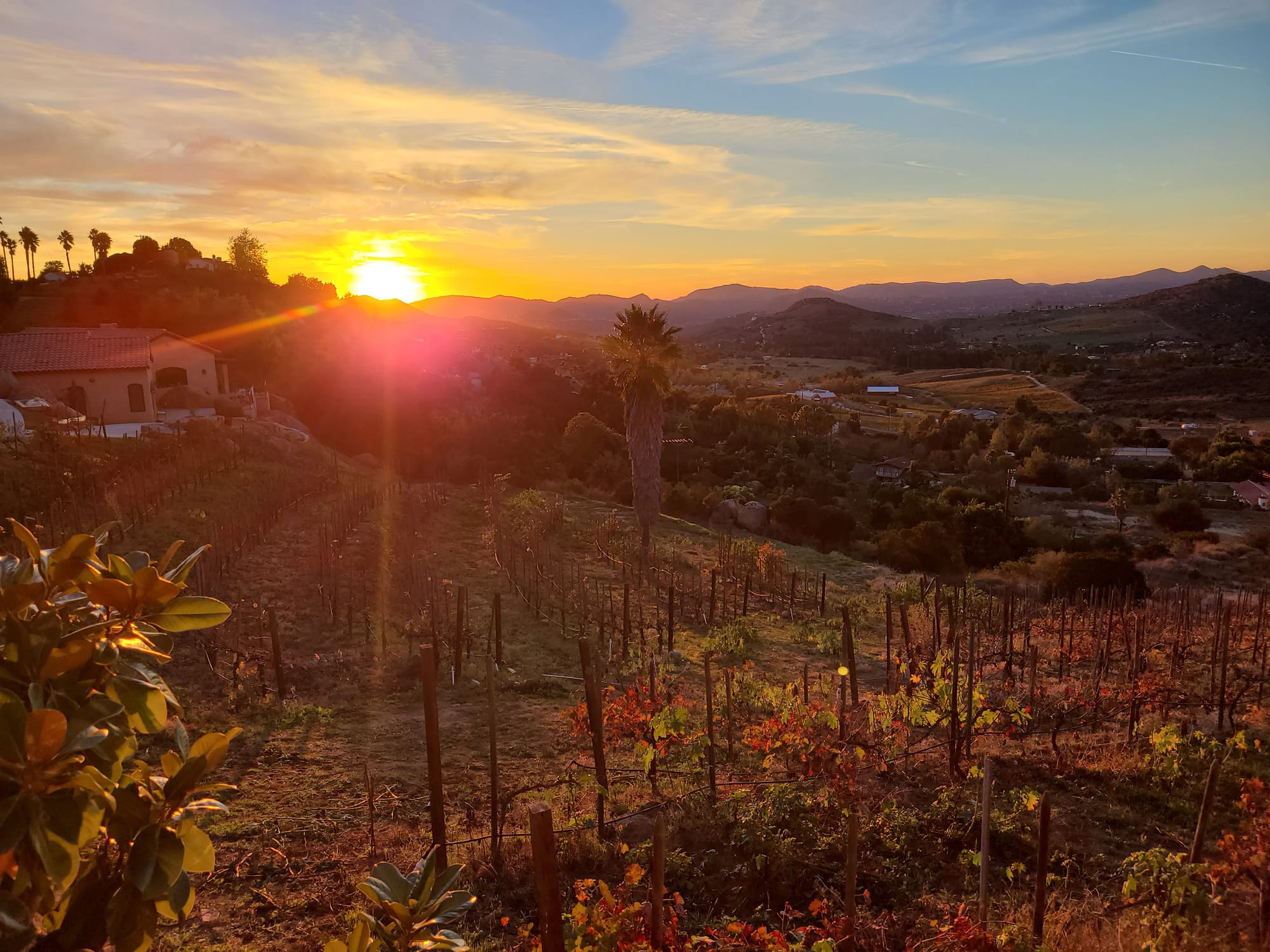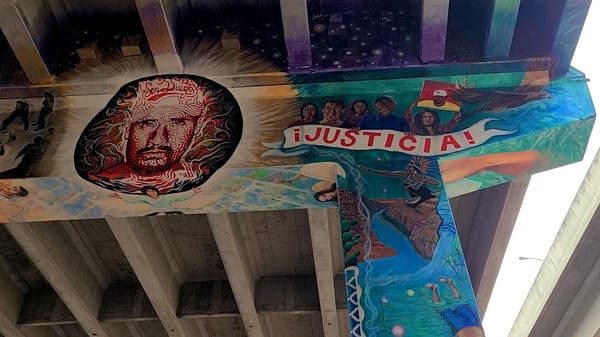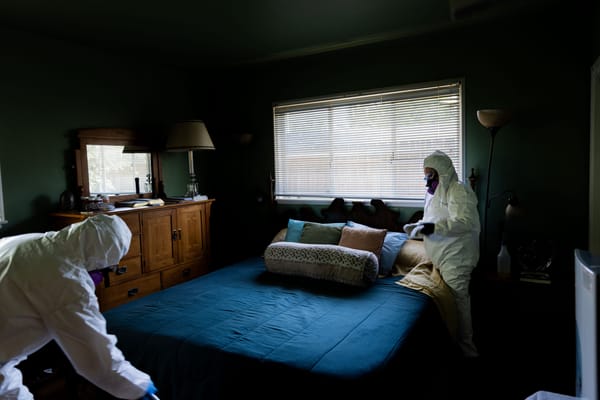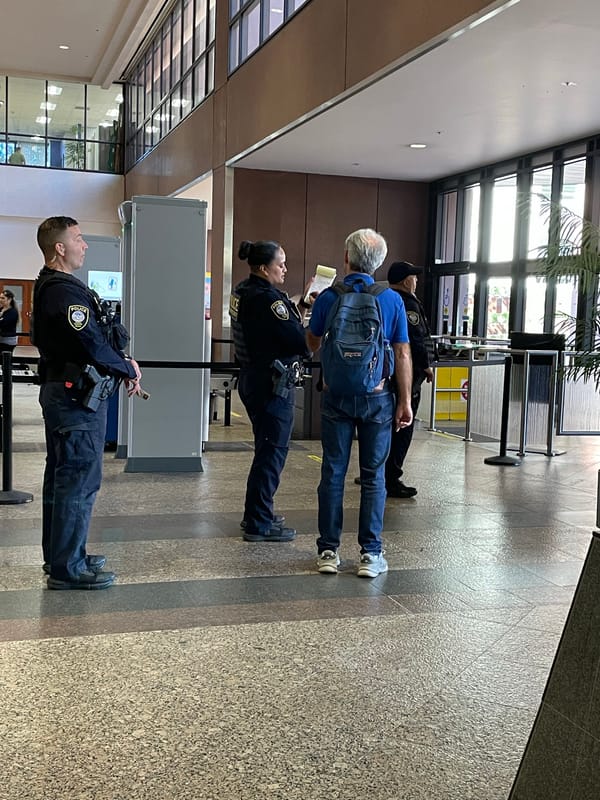Citizens arrested while documenting ICE activity freed after night in port of entry cells
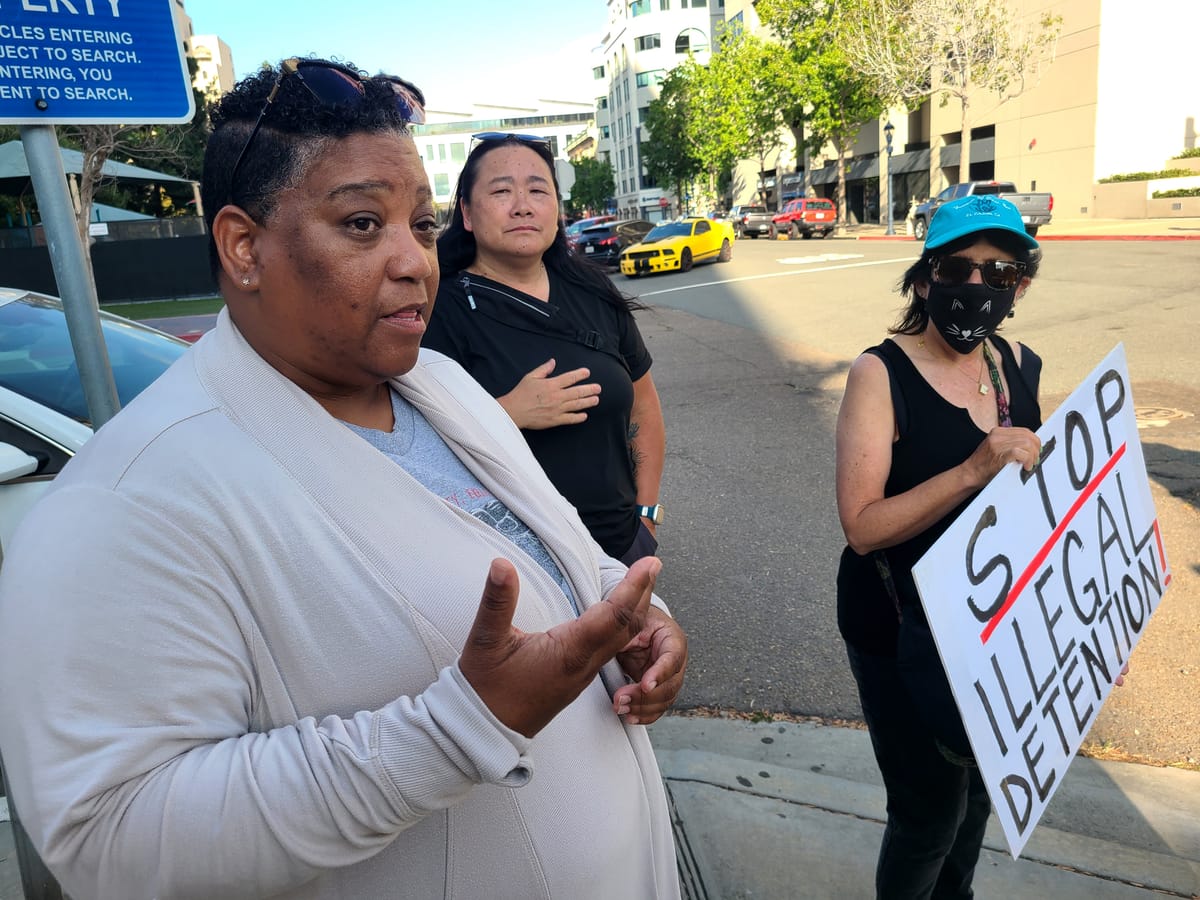
The three U.S. citizens were charged with a felony count of assaulting, resisting or impeding federal officers, but they were released on their own recognizance pending further hearings in the cases.
Written by Kate Morrissey, Edited by Lauren J. Mapp
Three U.S. citizens arrested by federal agents on Wednesday while witnessing an immigration enforcement operation in Linda Vista were released after more than 24 hours in custody to a waiting crowd of several dozen cheering loved ones, friends and activists.
The trio are each charged with one count of assaulting, resisting or impeding federal officers, a felony. Videos of their arrests have raised questions among community members about the validity of those charges, as masked federal agents in the footage appear to cross outside of police lines to drag the three people back inside — in at least one case violently pushing them to the ground.
“They lied on their reports,” said Tasha Williamson, a civil rights activist, at a press conference while waiting for the three people to get released. “The video that everyone has seen has absolutely shown that officers instigated, initiated and caused bodily injury to all three of the people that they arrested.”
Immigration and Customs Enforcement deferred to the Department of Justice when asked about the situation. The U.S. Attorney's Office did not respond to a request for comment in time for publication.
ICE told local TV stations that it respects the public's right to protest but would not tolerate violence against its officers and agents.
On Wednesday morning, Linda Vista residents noticed immigration officials in the parking lot of the Mesa Vista apartment complex. The agents arrested a man in the parking lot. Video reviewed by Daylight from witnesses shows a young man with his hands cuffed behind his back complying with masked agents as they pull him back and forth next to a Ford Mustang while they search it.
The man, identified in court records as Denis Anderson Chicoj-Yacon, was also later charged with assaulting federal officers.
A statement from Homeland Security Investigations Special Agent Nicholas Sisto that is part of court records says that the man is from Guatemala and was the target of the enforcement operation. Sisto said the team parked its vehicles to block the Mustang's exit and two Homeland Security Investigations agents and a Customs and Border Protection officer approached Chicoj-Yacon after he got into the parked car.
Sisto said that Chicoj-Yacon “appeared to use his phone and shake his head no” when the agents demanded that he get out of the car. When the agents started trying to break the windows of his car, Chicoj-Yacon attempted to drive forward and then reverse, Sisto said. Sisto said Chicoj-Yacon's car struck one of the government cars in the process.
“The video that everyone has seen has absolutely shown that officers instigated, initiated and caused bodily injury to all three of the people that they arrested.”
— Tasha Williamson, a civil rights activist
After Chicoj-Yacon's arrest, agents at first left the complex, according to witnesses, but then returned in larger numbers. Some community members gathered to document and witness their ongoing operation. Around noon, the federal agents called 9-1-1 and requested emergency assistance from San Diego police, according to Travis Easter, spokesperson for the San Diego Police Department.
Seven officers and a sergeant responded, according to Easter. They installed yellow police tape to separate the community members and the federal agents, according to video footage. Video reviewed by Daylight shows that, during this time, federal agents took photographs of license plates of cars parked in the complex.
California law restricts local police's ability to work with federal immigration officials, particularly from participating in immigration enforcement operations.
When asked about the department's presence for the operation, Easter cited the department's policy and said that it shows what officers can and cannot do under the law.
“Our officers can provide emergency assistance as we would for all law enforcement agencies to protect public safety,” Easter said. “Our officers’ focus is on detecting and apprehending individuals involved in criminal activity. We are not looking for violations of immigration laws.”
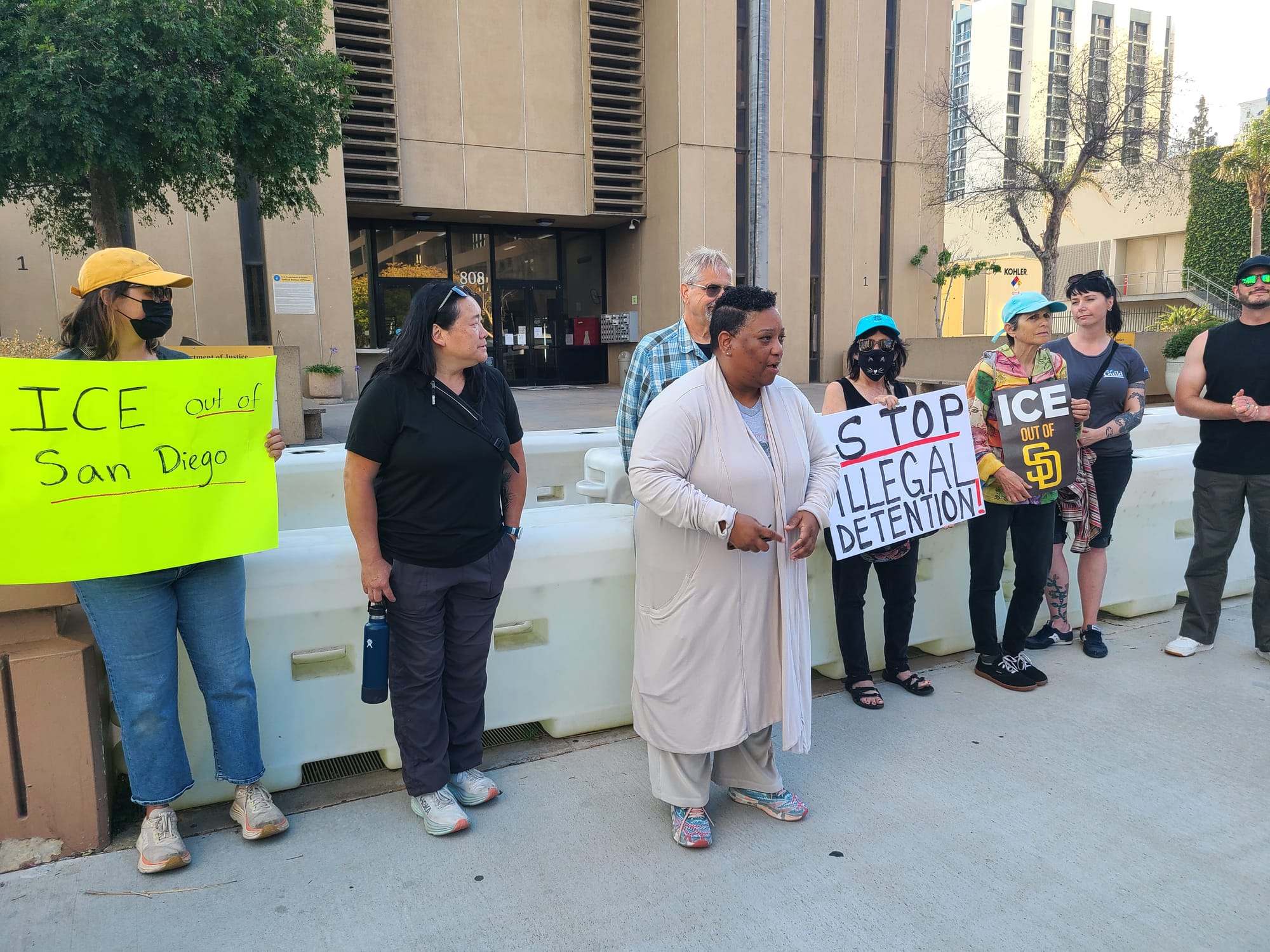
Williamson said she has already filed complaints with the department about the situation, saying that they were in violation of the California law.
Around 12:30 p.m., agents arrested activist Jeane Wong along with Raul Kuilan and his partner, who were watching the operation. That began a harrowing wait for family members and loved ones, who struggled to find where they were taken until the three appeared in a federal court room the following afternoon, according to Williamson.
Williamson questioned why San Diego police officers did not intervene when the federal agents used what appeared to be excessive force, including tackling Kuilan to the ground.
“No officer can be above the law,” Williamson said. “Assaulting and using excessive force is illegal.”
“They are not keeping the peace because keeping the peace means that you deal with both sides and that means that they have a duty to intervene,” she added.
At the initial custody hearing, the federal judge released the three U.S. citizens on their own recognizance, Williamson said. The man from Guatemala remains in custody.
A little before 8 p.m. on Thursday night, the trio exited the Metropolitan Correction Center San Diego. Amid tears and hugs, Wong and Kuilan said that they hadn't eaten from noon on Wednesday until sometime on Thursday morning.
They were held in the basement of the San Ysidro Port of Entry, they said, which is the custody of Customs and Border Protection. That's the place where asylum seekers were typically held when they requested protection at the border prior to policy changes that largely ended asylum processing.
CBP did not respond to a request for comment in time for publication.
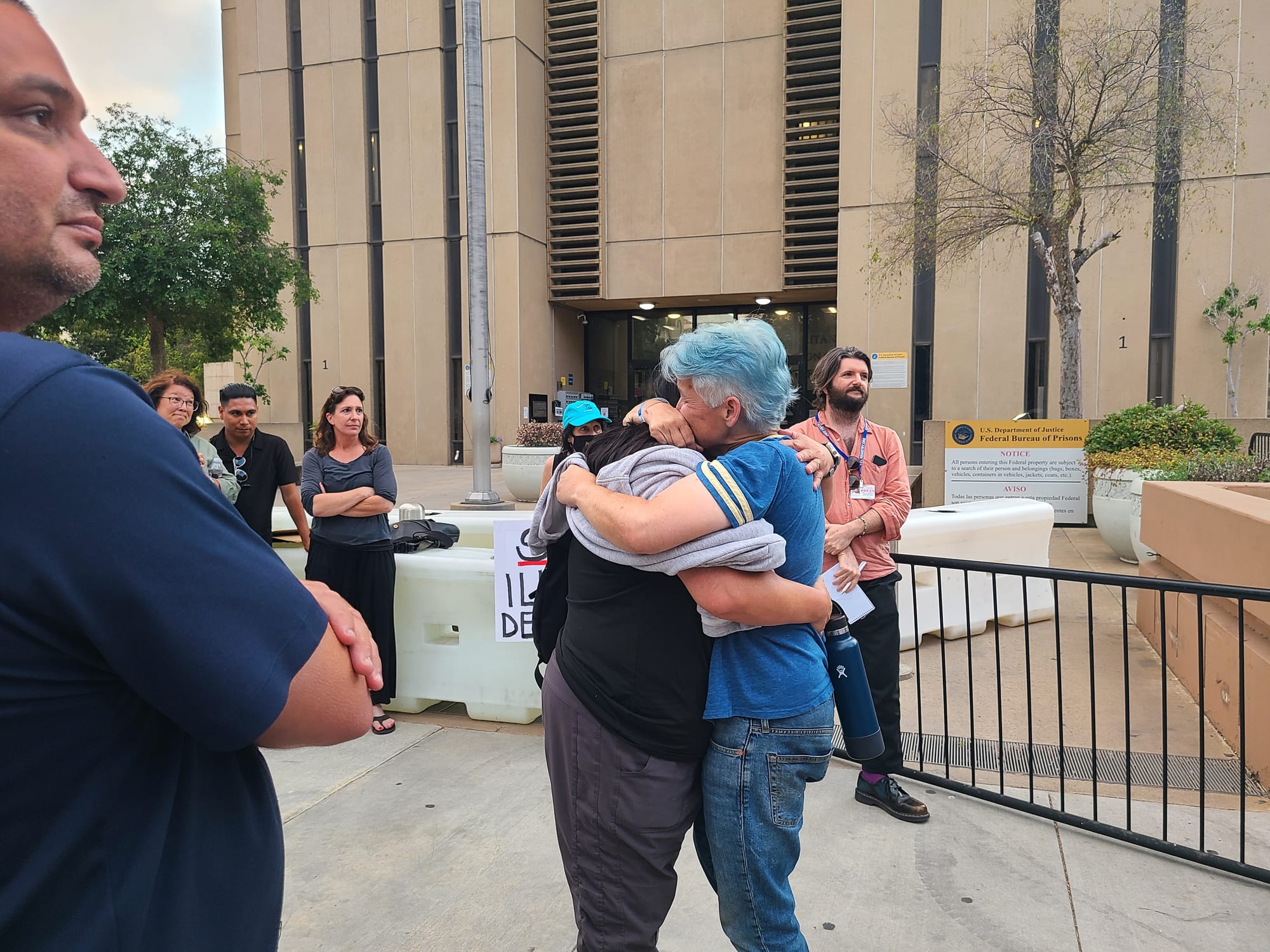
Wong also said that they weren't given phone calls during their time in custody. Their belongings, including identification cards, wallets, cellphones and even shoe laces, were taken when they went into custody and not returned, Wong said.
They also weren't given medical attention, Kuilan said. He was visibly bruised.
Wong noted how cold the holding cells in the basement of the port of entry were — a common complaint from the migrants typically held there. The nickname for the cells is the hielera, or freezer.
“They made us believe that they were kidnapping us and disappearing us,” Wong said.
Wong's voice was still hoarse from yelling for a phone call while in custody.
Wong hoped the community would rally behind Chicoj-Yacon and that he would eventually walk free as well.
Updated on July 5, 2025 at 2:00 p.m. to include additional information.


